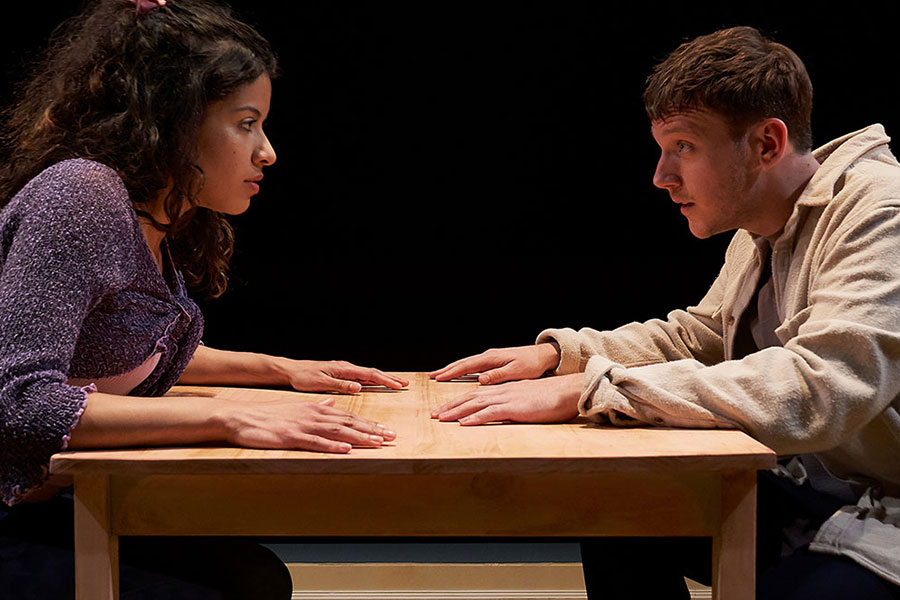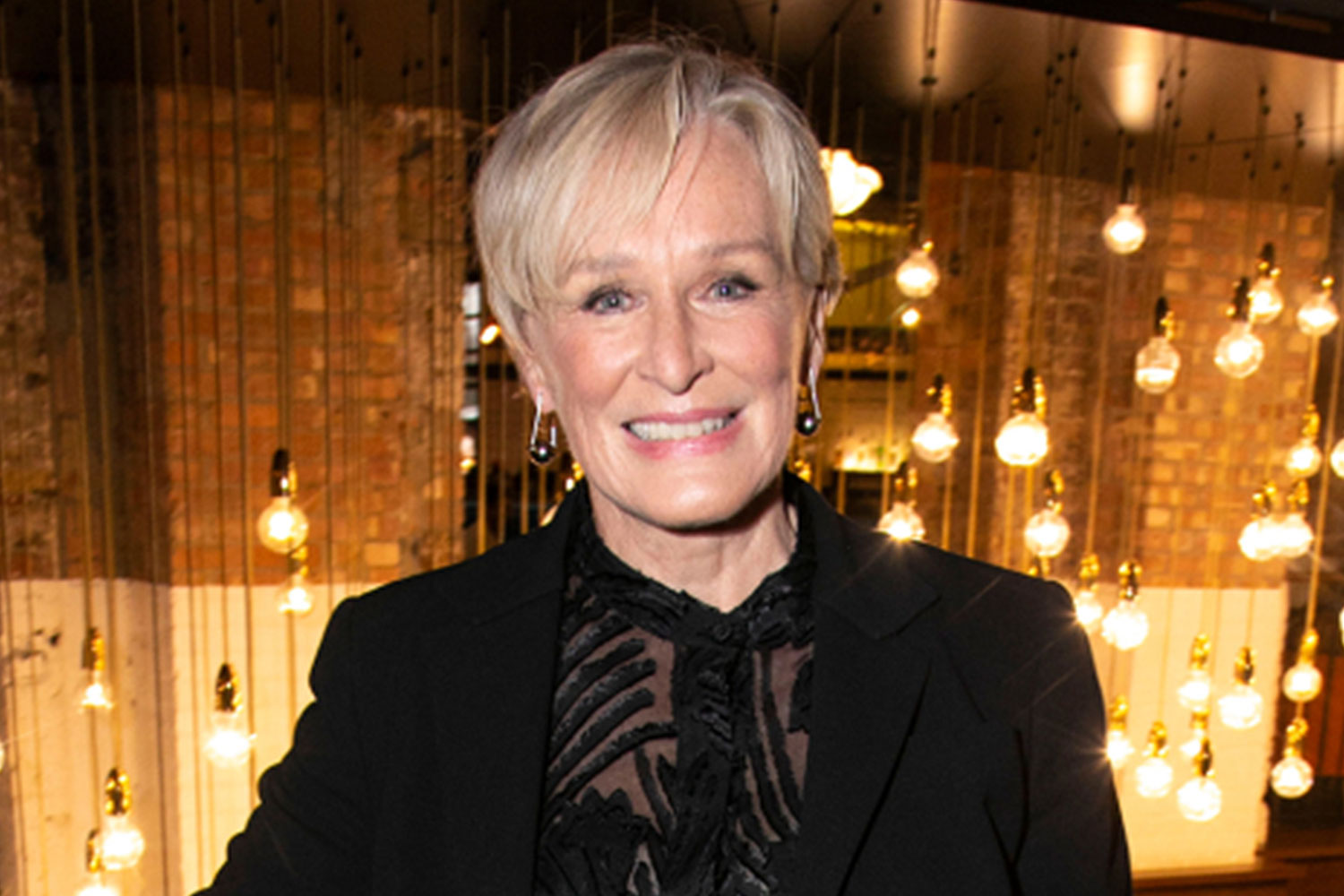Biscuits for Breakfast at Hampstead Theatre – review

Beneath the touristic façade seen in popular culture, Cornwall has some of the highest levels of poverty and unemployment in Britain. This has worsened since it lost the EU funding on which it relied (Cornish residents overwhelmingly voted Leave), making it a fitting setting for Gareth Farr’s play about food poverty and how it is so often hidden.
Farr’s compassionate two-hander, staged in traverse with minimal furniture and a sandpit (designed by Cecilia Carey), focuses on tentative 20-something couple Paul (Ben Castle-Gibb) and Joanne (Boadicea Ricketts). Both have experienced trauma in their lives: Paul continues to mourn his late father, an alcoholic fisherman who taught him how to cook and encouraged him to have high aspirations (he repeatedly listens to tape recordings of their conversations), while Joanne is a care leaver who takes whatever jobs she can find in order to survive. They work as a trainee chef and cleaner respectively in a smart hotel but when the hotel closes suddenly and both are left unemployed (the only option is unstable shift work in a garlic bread factory), they quickly slide from enjoying hearty meals to being unable to afford bread.
Castle-Gibb gives a thoughtful, nuanced performance as the diffident Paul, who manages to impress the defensive Joanne with his fancy knife skills and delicious home-cooked dinners. He lights up when he talks about the process of cooking and aspires to publish a cookbook celebrating Cornish cookery (quite a challenge for anyone who isn’t a celebrity chef). His act of cruelty towards the end is likely intended to show how hunger can drive a person to treat their loved ones poorly but the vehemence does feel out of character. Ricketts’ tough Joanne, who has always had to be self-reliant, is the practical one with no time for idealism when food needs to be put on the table now. These are strong individual performances but they struggle to be entirely convincing as an ‘opposites attract’ couple.
All the food is mimed in Tessa Walker’s production and the act of cooking has a balletic grace. Foraging for seafood on the beach is like a game but going to a foodbank, which involves answering humiliating personal questions, is only for the most destitute, which no one would want to admit to being (how can they be so desperate when both are earning some money?).
Farr focuses on the couple’s personal story, with virtually no discussion of the political situation that has allowed such deprivation to transpire in one of the wealthiest countries in the world. Paul mentions briefly that you can’t not be political if you’ve from a fishing community, but that’s it. It’s commendable that Farr doesn’t lecture but some emphasis on the fact that these personal struggles are the result of years of austerity would hold the government to account.
Paul’s father’s advice, ‘Dream big, be better, work hard’, however well-intended, feels like mockery in this economic climate in which people keep getting poorer. Fortunately, there is hope but the way in which the couple are required to tap into their deepest inner reserves of strength to find it is heartbreaking rather than in any way heartening.










